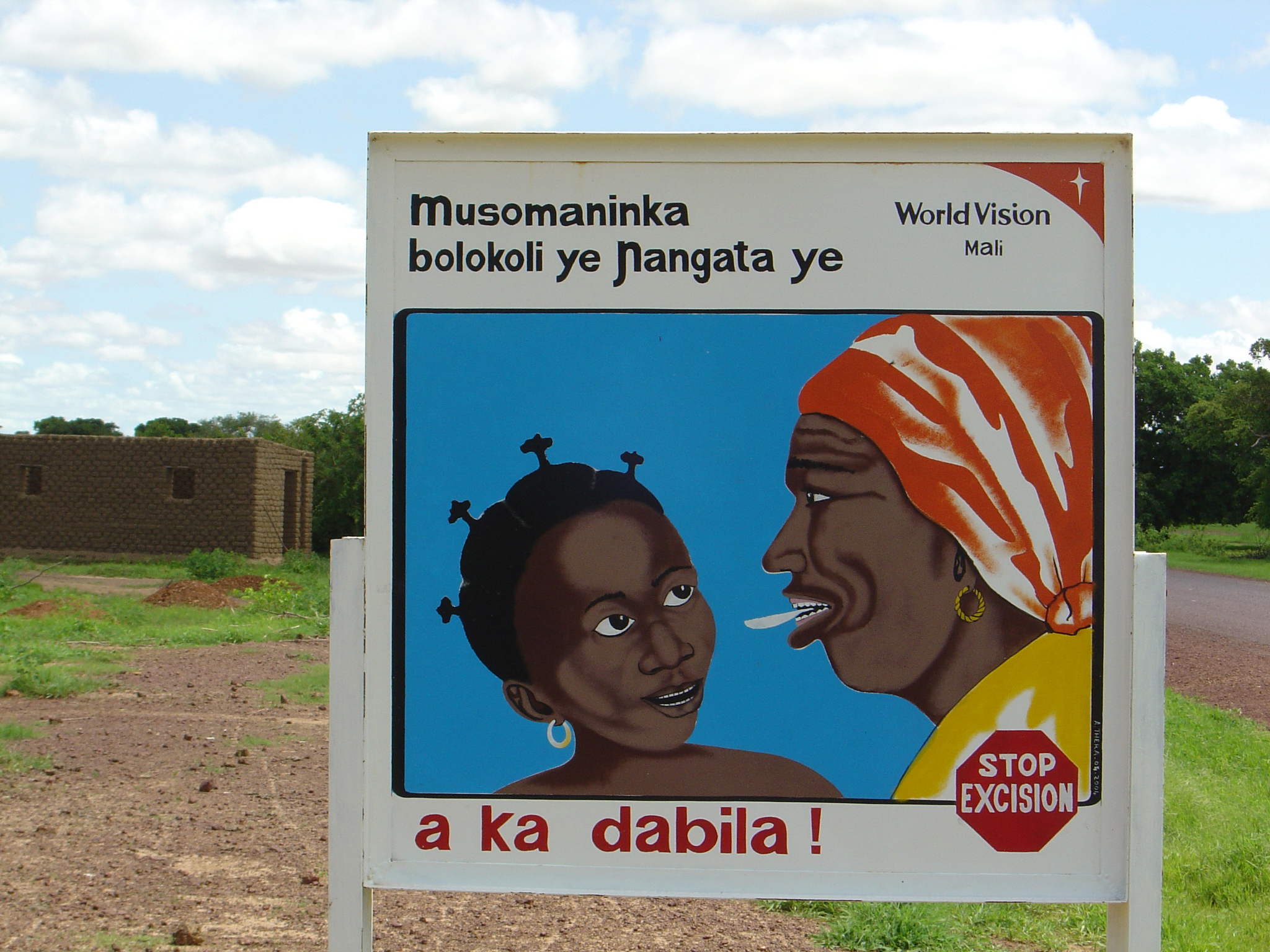
Africans “must fight” female circumcision

Mariam Namogo, head of a Swiss charity project against female genital mutilation in Mali, says Africans need to fight against the practice.
It is estimated that 130 million women and girls have been affected by genital cutting worldwide, with Africa being particularly hard hit. And the numbers are increasing.
Namogo, a warm and energetic 47-year-old, has been in Switzerland to present her work at a series of conferences. She works for the non-governmental organisation Helvetas.
She says that there are only two to three expatriates working on her project. The rest of the staff are local.
“It’s very important to convince people that the fight against cutting is not just a western whim, but something that concerns Africans,” she explained.
In Mali an estimated 90 per cent of women have been circumcised. This painful practice, which involves the partial or total removal of the external female genitalia, has been banned in hospitals, but is often carried out in unclean toilets, said Namogo.
“Even if the cutting has taken place in hygienic conditions, it doesn’t stop there being health problems among 30 per cent of circumcised women,” she said.
It can lead to haemorrhages, infections and incontinence, as well as cysts and problems in sexual relations and when giving birth. Also common are depression, infertility and marital conflict.
Ancient practice
Female genital cutting is a very old practice, with evidence of it even found among Ancient Egyptian mummies.
“Originally it was a rite of passage which was very important for girls in puberty,” explained the Helvetas expert. “It was a ritual which mixed the individual and society, reality and the imaginary.”
“But today the age for cutting has dropped and 84 per cent of girls under 15 are circumcised. This shows that this rite has lost its original content.”
The practice is carried out by Muslims (90 per cent), Animists (nine per cent) and Christians (one per cent).
“Some imams tend to integrate circumcision into religious practices, despite the fact that the Koran does not say anything about it. But the Mali population can’t read,” explained Namogo.
Female genital mutilation may be against human rights, but it is still legal in Mali. “The authorities have a half-hearted attitude,” explained the project head.
“On the one hand there’s a willingness to do something but not much money, on the other people don’t want trouble.”
In July last year, the Mali parliament voted in a family law banning genital mutilation but faced with opposition from Muslim activists, the country’s president refused to sign it off.
Breaking a taboo
It was a harsh blow, admits Namogo, who says that the problem lies in the fact that the issue is both intimate and part of society.
“It was such a taboo that even women themselves didn’t make the link between their health and cutting, which was part of life.”
The Helvetas project has been a real chance, she adds. “We had to start by testing our own knowledge, by giving ourselves what we needed to convince both ourselves and our families to break the taboo.
“Once we managed to talk about it, the most difficult part was over. We often have to suffer insults or attacks, but we know that these people don’t know anything.”
The project’s aim is to raise awareness among the media, NGOs and associations. It also gives financing and technical know-how to the associations so they can work among local communities.
In the NGO’s target region, one village has legally stopped female circumcision and eight are planning to follow. It’s hard work, but there are good moments, Namogo says.
“Once, during a village gathering, the mayor said that there was no problem and that it was all made up. And then a woman got up and lifted up her dress and had the enormous courage to show what had happened to her. That day the community decided to stop cutting.”
Hopes
Namogo is placing her hopes with young people – and men. “They are becoming more concerned by the issue, because they have to pay for the genital mutilations as well as for the associated health problems among their wives and daughters,” she explained.
“They would also like an easier married life because women often refuse to have sexual relations and this causes lots of divorces.”
But this determined woman also has words for people in the West.
“It’s wrong to say that mothers don’t love their daughters. We are not barbarians but this phenomenon is part of our identity and it’s totally normal that people seek to maintain this identity.”
Isabelle Eichenberger, swissinfo.ch
Helvetas was founded in 1955 as the first private organisation for development cooperation in Switzerland.
It forms part of Alliance Sud, the umbrella group of development organisations, along with Swissaid, Bread for All, the Swiss Catholic Lenten Fund, Caritas and Swiss Interchurch Aid.
In 2009, it had projects in 18 countries, which are implemented by 600 local employees and 45 expats. It has a staff of around 60 people in Switzerland.
Helvetas has been in Mali since 1977. Approximately half the country is desert and 90 per cent of the population survives on less than $2 (SFr2.3) a day.
1963: Born in Bambara, lives in Bamako. She has a master in project administration and first worked for a Canadian NGO for 13 years. She then finished her studies.
2001: Hired by Helvetas in Mali as advisor in citizenship studies during Mali’s decentralization.
2007: Made head of the anti-FGM project.
She is a widow with two daughters aged 26 and 22, both students.

In compliance with the JTI standards
More: SWI swissinfo.ch certified by the Journalism Trust Initiative





























You can find an overview of ongoing debates with our journalists here . Please join us!
If you want to start a conversation about a topic raised in this article or want to report factual errors, email us at english@swissinfo.ch.